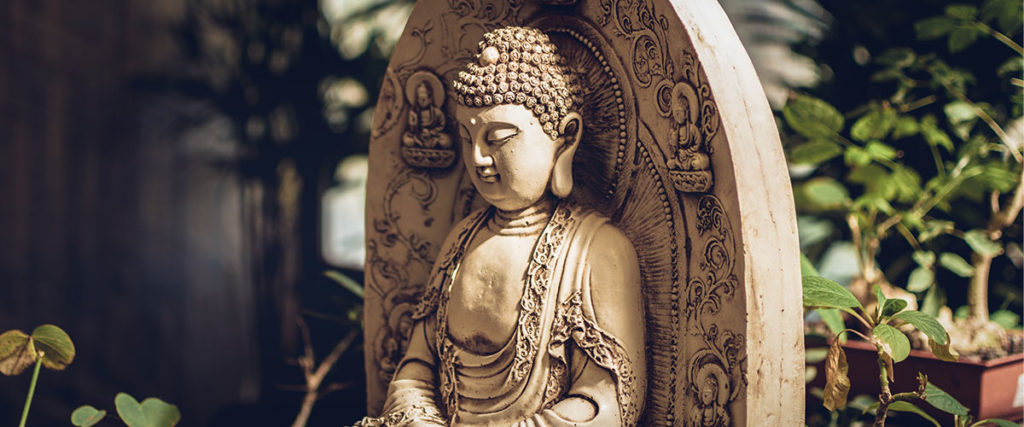When it comes to religion in Singapore, this multi-ethnic, multi-religious country celebrates a diversity of faiths – and Singapore’s constitution guarantees the right of religious freedom for all people.
Religion in Singapore encompasses Buddhism (33.2%), Christianity (18.7%), Islam (14.0%), Taoism (10.0%) and Hinduism (5.0%), according to the 2015 General Household Survey. In fact, according to a 2014 study, Singapore is the most religiously diverse country in the world with 10 officially recognised faiths. Here’s a breakdown of the 5 main religions practised in the Lion City today.
Buddhism
Practised by one-third of the general population, Buddhism is by far the largest religious group in Singapore. There are 3 main branches of Buddhism in Singapore: Theravada, Mahayana, and Vajrayana. Theravada is the oldest and most common denomination and was brought to Singapore by the Thais, Burmese and Sri Lankans. Mahayana originated from early Chinese immigrants and is the main practice of the Chinese community in Singapore. Finally, Vajrayana originated from Tibet and is practised mainly by the Tibetan population. A prominent Buddhist temple is the Kong Meng San Phor Kark See Monastery. One of the largest Mahayana Buddhist temples in Singapore, it was built in the mid-20th century to spread Buddhism.

Christianity
Introduced by British colonists in the 19th century, Christianity constitutes almost one-fifth of Singapore’s population and has seen a steady increase in popularity over the years. While Christian churches of all denominations can be found in Singapore, the majority of the country’s Christian population follow Protestant denominations, while around 38.5% identify as Catholic, according to the 2010 census. Singapore’s oldest Christian church, the Armenian Church, was built in 1835 and offers an aerial video tour. The church is popular amongst Christians worldwide.
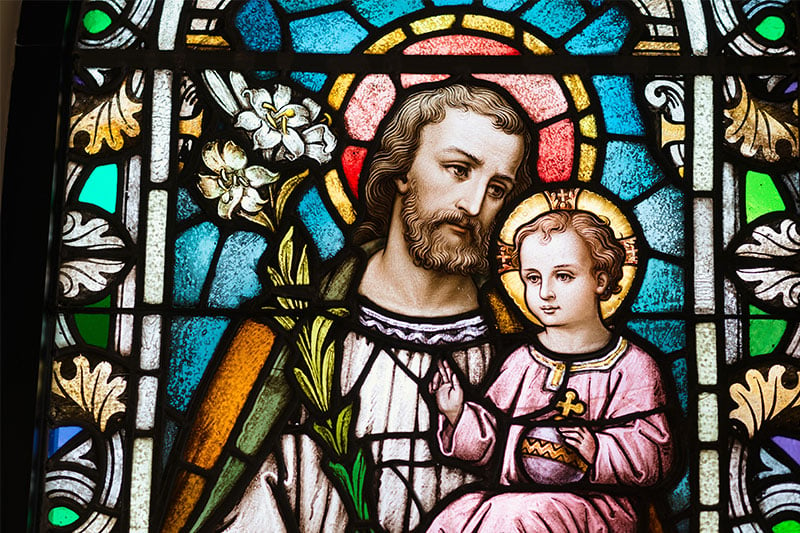
Islam
Followers of Islam make up approximately 14% of Singapore’s population, the majority of which are ethnically Malay. Singapore was a part of Malaysia until its separation in 1965, which is why the Singaporean government recognises people of indigenous Malay ethnicity as indigenous Singaporeans, extending unique religious freedoms to Muslims. In 1968, the Majlis Ugama Islam Singapura (MUIS) was established as the statutory body responsible for protecting the needs of Muslims in Singapore. One of Singapore’s most impressive mosques, the Masjid Sultan was built in 1824 for Sultan Hussein Shah, the first sultan of Singapore. In 1975, it was declared a national monument.
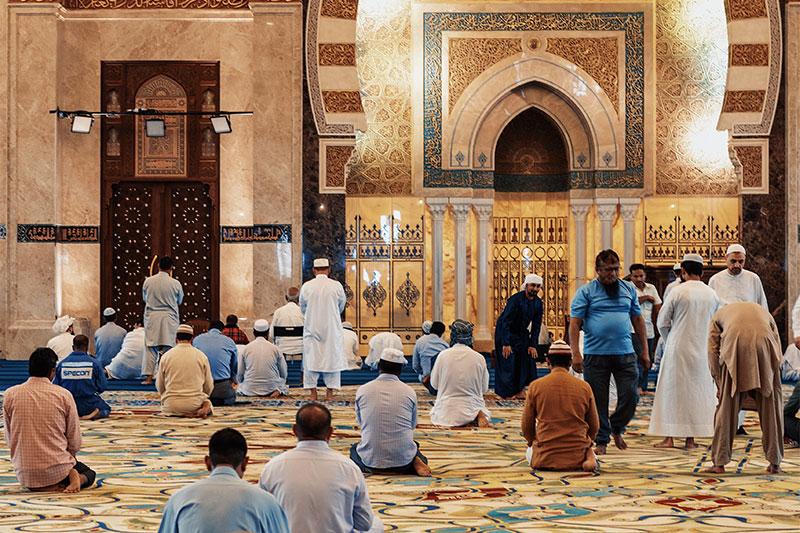
Taoism
Borne from the teachings of Chinese philosopher Lao Zi, Taoism is another major religion in Singapore. Initially brought to Singapore by Chinese immigrants, followers of the faith make up about 10% of the population, though this number has seen a steady decrease over the years. The propagator of the yin and yang theory, Lao Zi believed in honouring ancestors and being compassionate towards others. The oldest Taoist temple in Singapore is the Thian Hock Keng Temple, which was designed and built in 1842 by Chinese craftsmen.
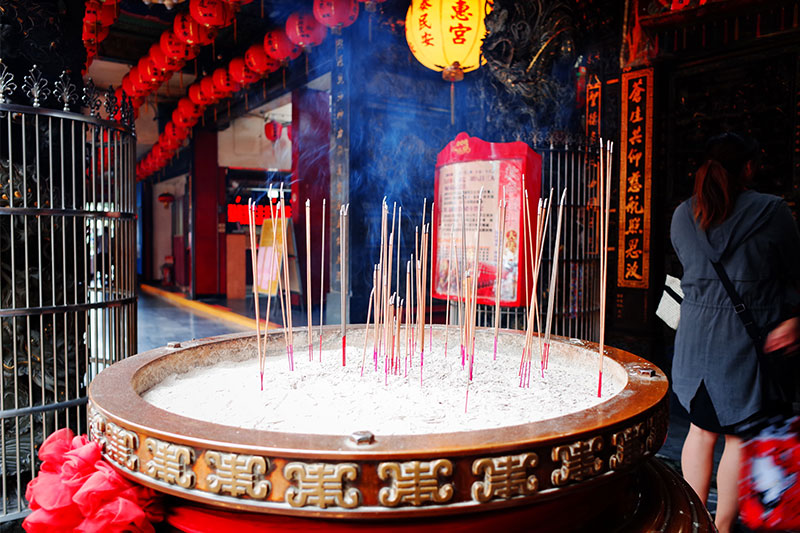
Hinduism
Although Hinduism is an officially recognised religion, its followers only make up about 5% of the Singaporean population. Practised mainly by the ethnically Indian population, Hinduism was brought to Singapore by migrant workers who arrived in the 19th and 20th centuries from India. Upon their arrival, the workers created temples dedicated to different deities, eventually establishing the community known as Little India. The oldest Hindu temple in Singapore is the Sri Mariamman Temple. Located in the heart of Chinatown, this temple is one of the most prominent places of worship for Hindus worldwide.
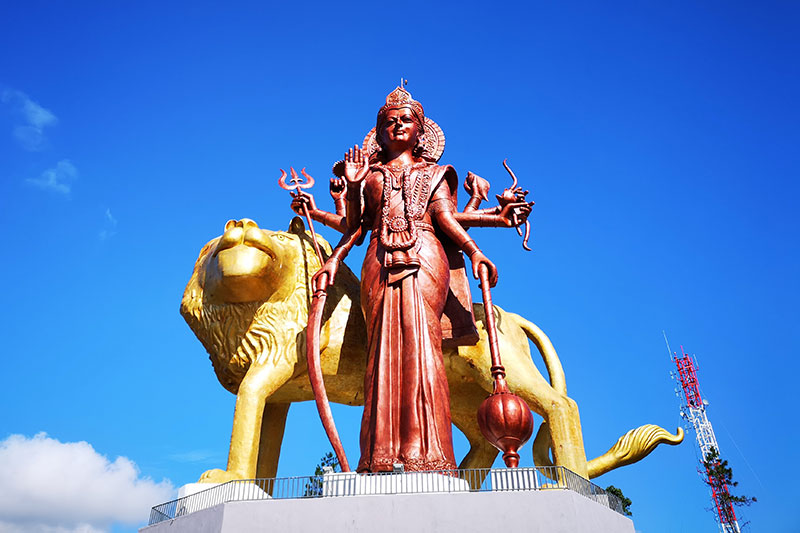
Non-Religious
A growing demographic in Singapore is the non-religious population, which has seen a steady increase over the last decade, particularly amongst youths. As of 2015, 18.5% of Singaporeans were reported to have no religious affiliation, 65% of which were aged between 15 and 44. Amongst this demographic are atheists, agnostics, humanists, and sceptics.
Related Articles
Singapore Food Guide: 14 Famous Local Dishes You Should Try
